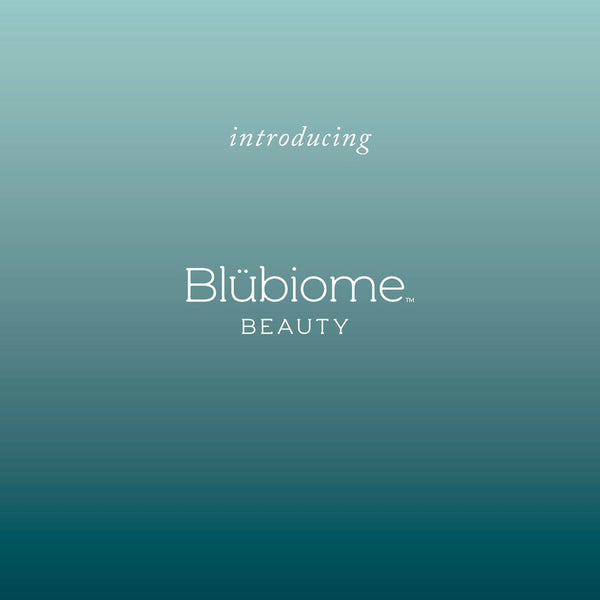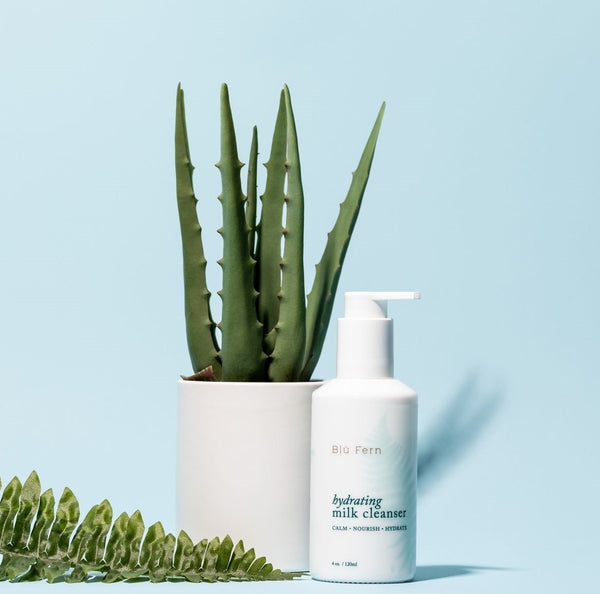Not too long ago many had not heard of the word ‘microbiome’. Today, you can’t have a conversation about health without bringing up the microbiome. And for good reason. Our gut bacteria is responsible for a healthy immune system and brain function. However, what most people still don’t realize is that skin surface has its own microbiome which, like that of the gut, is responsible for the health and balance of our skin.
Processed foods, sugar, antibiotics and hormones, abundant in the modern diet and lifestyle, are largely responsible for an impoverished good gut bacteria, while harsh skincare routines, especially cleansers, are primarily responsible of most topical skin issues.
Let’s start with diet. While the obvious place to start is to reduce the consumption of inflammatory foods and unnecessary medications, it is paramount that we consume a diverse diet, rich in fiber, prebiotic and probiotic foods to feed the good gut microbes, while starving the bad ones.
What are the best foods for a healthy gut microbiome?
- Foods that are rich in fiber
Apples
Artichokes
Avocados
Bananas
Beans
Berries
Broccoli
Brussels sprouts
Cabbage
Celery
Coconut
Cucumbers
Dandelion greens
Figs
Garlic
Kale
Lentils
Nuts and seeds
Olives and olive oil
Onions
Spinach
Sweet potatoes
- Fermented Foods
Coconut yogurt – unsweetened
Sauerkraut
Pickled vegetables
Kimchi
Kefir - Unsweetened
Miso
Tamari
Tempeh
Tofu
Naturally fermented soy sauce
Unpasteurized apple cider vinegar
It is also helpful to supplement with Probiotics when diet falls short. When shopping for a probiotic, look for one with at least 25-50 billion living CFUs (colony-forming units), including the most beneficial strains like:
Bifidobacterium bifidum
Bifidobacterium longum
Bifidobacterium breve
Lactobacillus acidophilus
Lactobacillus rhamnosus
Lactobacillus bulgaricus
What are the foods that negatively affect our gut microbiome?
Anti-inflammatories such as ibuprofen, Advil, and aspirin
Acid blockers, like those prescribed for acid reflux Antibiotic drugs, except when absolutely necessary
Hormones, including birth control pills
Processed / packaged foods
Refined grains, especially wheat
Sugars, including high fructose corn syrup, and artificial sweeteners
Refined oils and fats, especially soybean and corn oil
Steroids
What are the products or ingredients that negatively affect our skin microbiome?
Similar to gut microbiome, the skin’s balance can be severely offset by the use of unnatural compounds, antibiotics and harsh ingredients - Essentially, anything that strips the skin of all bacteria, the good and the bad. A few examples:
Antibacterial soaps (hand)
Cleansers containing harsh detergents like SLS
Alcohol-based products like hand-sanitizers
Physical exfoliants and scrubs
Chemical peels
High concentrations of essential oils, especially citrus.
Products containing high amounts of chemical preservatives.
What products or ingredients are good for our skin microbiome?
- Gentle non-foaming cleansers
The most integral product to the health of the skin’s microbiome is the cleanser. Proper cleansing is pretty much half the battle. When you start off your skincare routine with a harsh cleanser, you’re set back a few steps. You most likely stripped your skin off its natural lipids, essential to its health and balance. Now, your skin is in need of replenishment of those lipid, and that can prove difficult given that each person’s skin is unique. It could take a few trials and errors to try and regain the right balance.
The best approach to cleansing is to cleanse the skin once in the morning, using a light-weight cream cleanser. At night, you’d want to double-cleanse, starting with an oil cleanser to remove dirt accumulated throughout the day, make up, sunscreen, etc. Then follow with a cream cleanser to cleanse the skin itself. Getting the cleansing process right will save you a lot of time, hassle, and potential wrinkles. You’ll also find that you might experience less build-up in your pores in way of white and blackheads, reducing your need for extractions and other spa treatments.
But not all cleansers are created equal. Some oils can be too heavy and occlusive that they don’t wash off easily. We recommend you try our very own Blü Fern Nourishing Oil Cleanser, which uses a blend of nature’s most lightweight fermented oils. These enhanced oils create the perfect environments for the beneficial bacteria to properly propagate.
- Fermented oils
Fermentation of beauty oils is a process that’s thousands of years old, but we’re bringing it back! Fermented oils are far more beneficial for the skin for a few reasons. But let’s first explain what it means to ferment an oil. The process of fermentation takes place when a microorganism such as a fungi or bacteria is introduced to an ingredient, without the presence of oxygen, which breaks down the ingredient over time. The smaller molecular structure makes the oil more bioavailable, absorbing deeper into the skin delivering an abundance of antioxidants and essential fatty acids.
Fermented oils are far more successful at soothing sensitive skin types than non-fermented counterparts. Additionally, they are effective at treating acneic skin due to their rebalancing effect. This makes Blü Fern Botanical Facial Oil ideal for all skin types achieving a lot more than moisturization. It helps protect the skin’s delicate microbiome, repair fine lines and soothe irritated skin.
The evidence is there that a healthy gut microbiome is directly correlated to skin health. The good news is that there is now research looking separately at skin’s topical microbiome and that’s exciting!
 Skip to content
Skip to content




